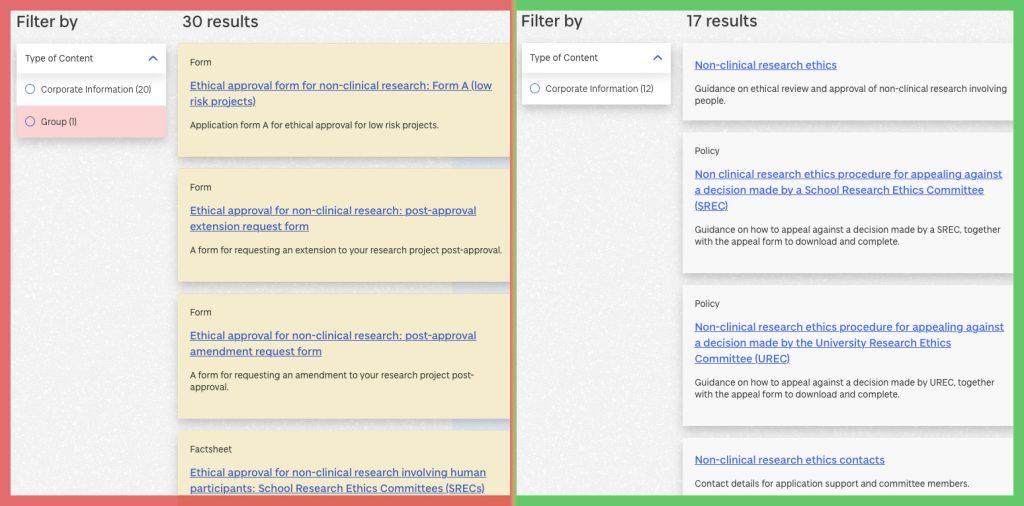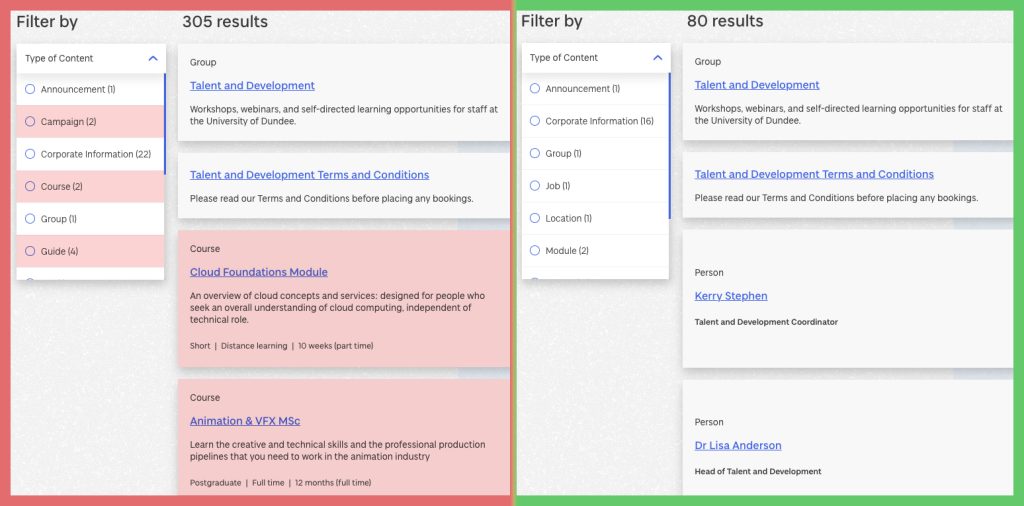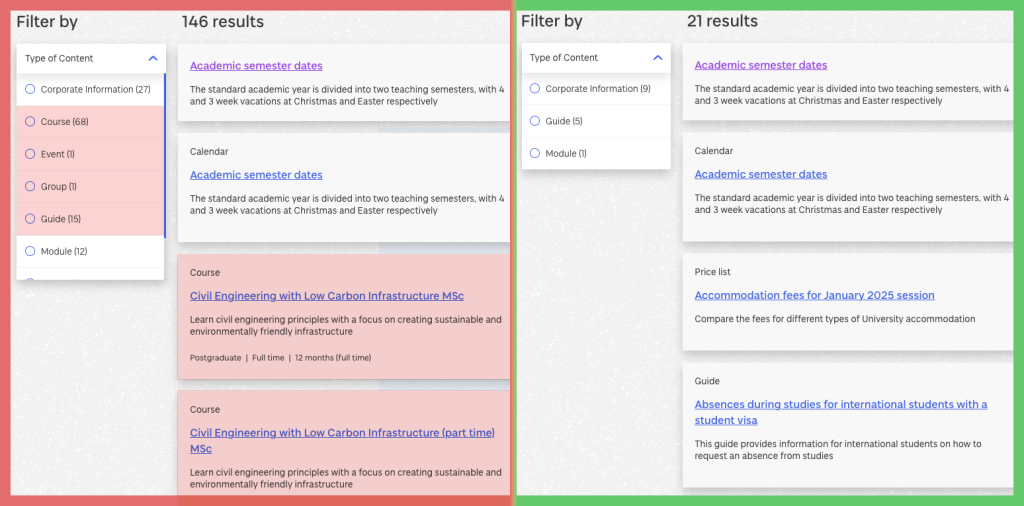Our website has tens of thousands of web pages. Searches must return meaningful results for our audiences to find the right information. Search engine optimisation (SEO) is a practice aimed at enhancing a website’s visibility and ranking on search engine results pages. We analyse real search trends for our site and feed our findings into our pages. These iterations represent our desire to boost our opportunities and resources.
When we first launched our Drupal website, our search was set to parse “multiple words”. This scored pages on the total combined occurrences of each word. Pages were then sorted by highest to lowest score in the search results. As our website grows, so too have the results by parsing with “multiple words”. More results mean more terms, quotation marks, filters, and yet more combing through.
Phrasing the (search) bar
We have reconfigured our settings to use “phrase search” to aid our users. This evaluates the search string as one expression, much like adding quotation marks. Single-word searches continue to function as they did with “multiple words”. This new parser also includes a range value, determining how far apart words can be from one another. We have set this to a threshold of ten words at most, allowing for some variance in copywriting.
Here are three examples, comparing popular multi-word search queries from 2024 to today:
Non-clinical research ethics

- On the left is a search using “multiple words”. On the right is a search using “phrase search”.
- Red-highlighted areas are results which no longer appear using “phrase search”.
- Yellow-highlighted areas are results that score lower using “phrase search”.
- Search results for “non-clinical research ethics” are now half the previous amount.
- The top result is now the “Non-clinical research ethics” page, which has moved up twelve places.
- The “Ethical approval for non-clinical research” forms have moved down six places.
- Pages containing “non-clinical”, “research”, and “ethics” outwith a phrase format are now omitted.
Talent and Development

- On the left is a search using “multiple words”. On the right is a search using “phrase search”.
- Red-highlighted areas are results which no longer appear using “phrase search”.
- Search results for “talent and development” are now a quarter of the previous amount.
- The top results now include staff who work within the Talent and Development department.
- Pages containing “talent”, “and”, and “development” outwith a phrase format are now omitted.
Semester dates

- On the left is a search using “multiple words”. On the right is a search using “phrase search”.
- Red-highlighted areas are results which no longer appear using “phrase search”.
- Search results for “semester dates” are now a sixth of the previous amount.
- The first result is a search-card designed to capture similarly searches, such as “term dates”.
- The second result is the referenced page as above with a natural high score for this search.
- Pages containing “semester” and “dates” outwith a phrase format are now omitted.
Searching ahead
With “phrase search”, we can now further narrow down false positives in our search. We look forward to analysing how this change might influence search trends. Iterations for our SEO continue with further improvements already in mind.
For now, we hope this change to search will help you find what you’re looking for.
